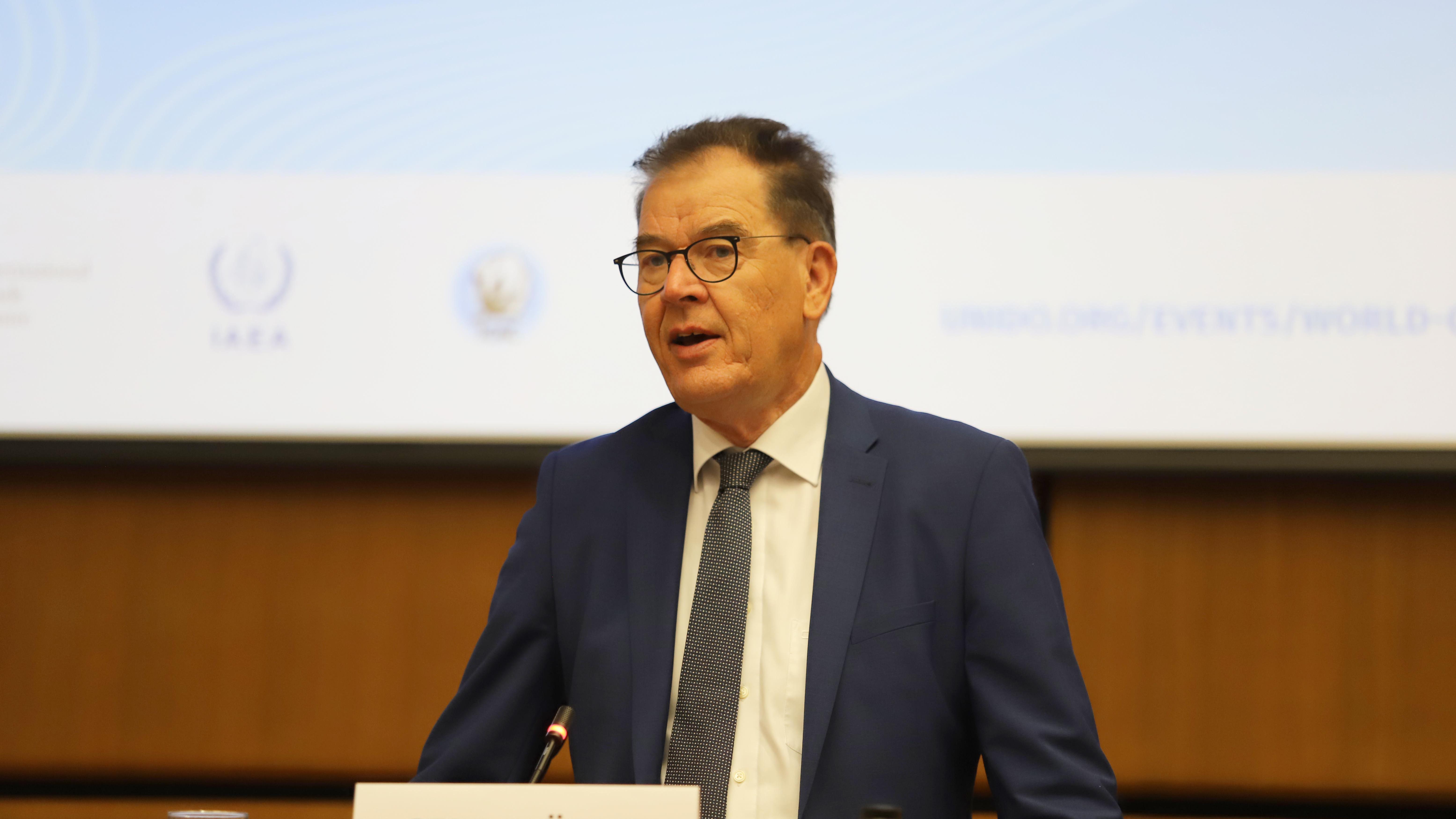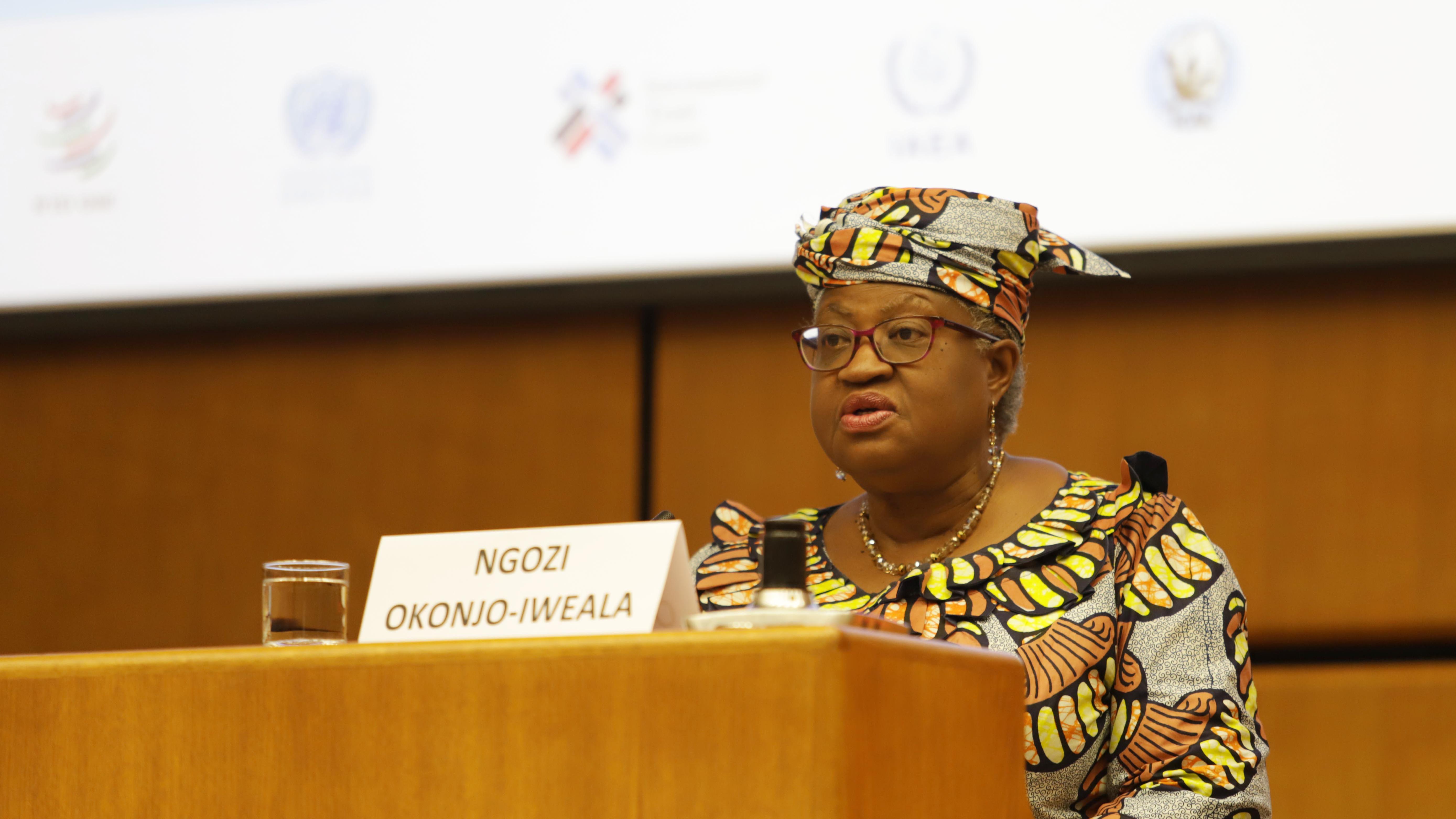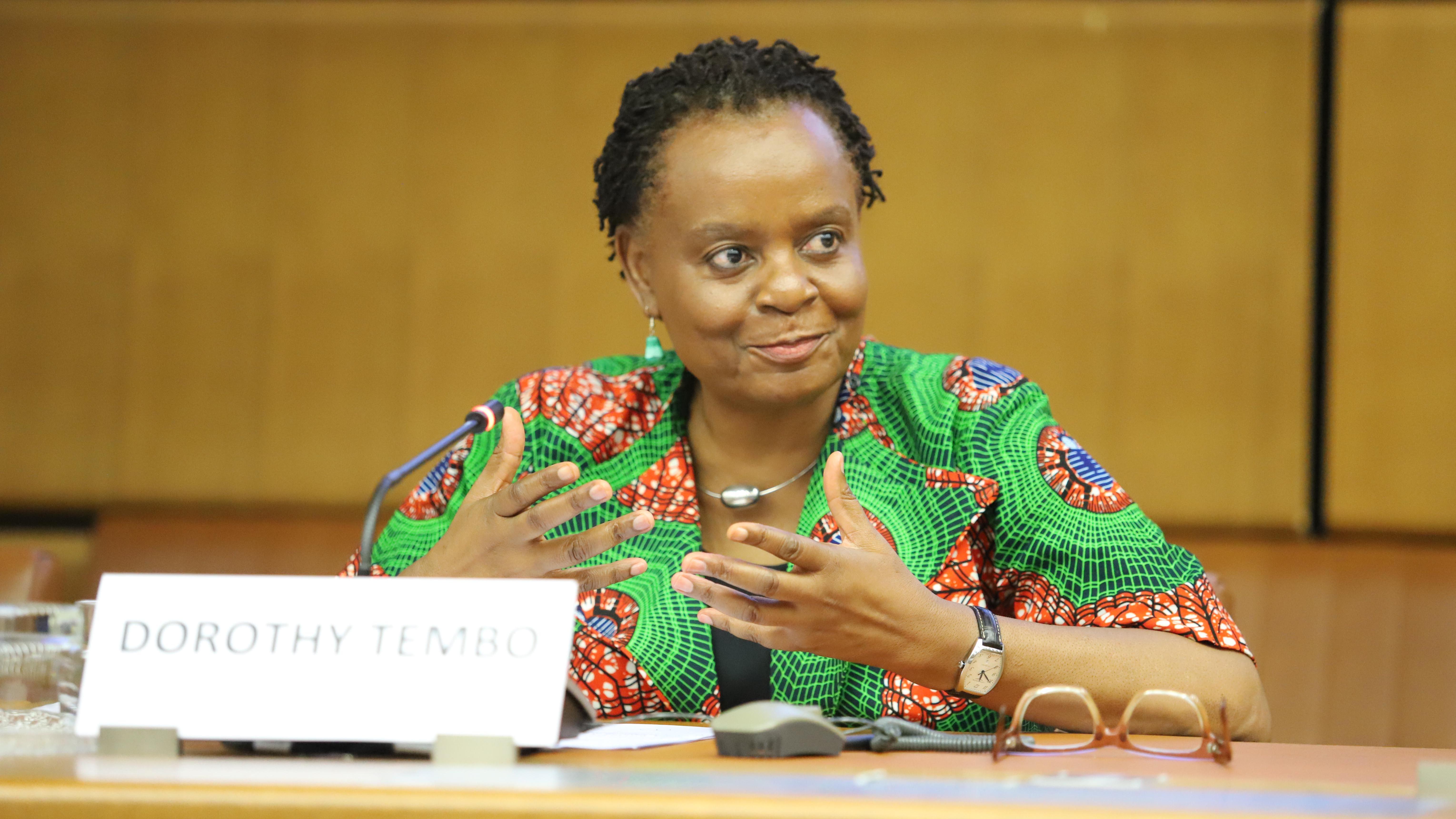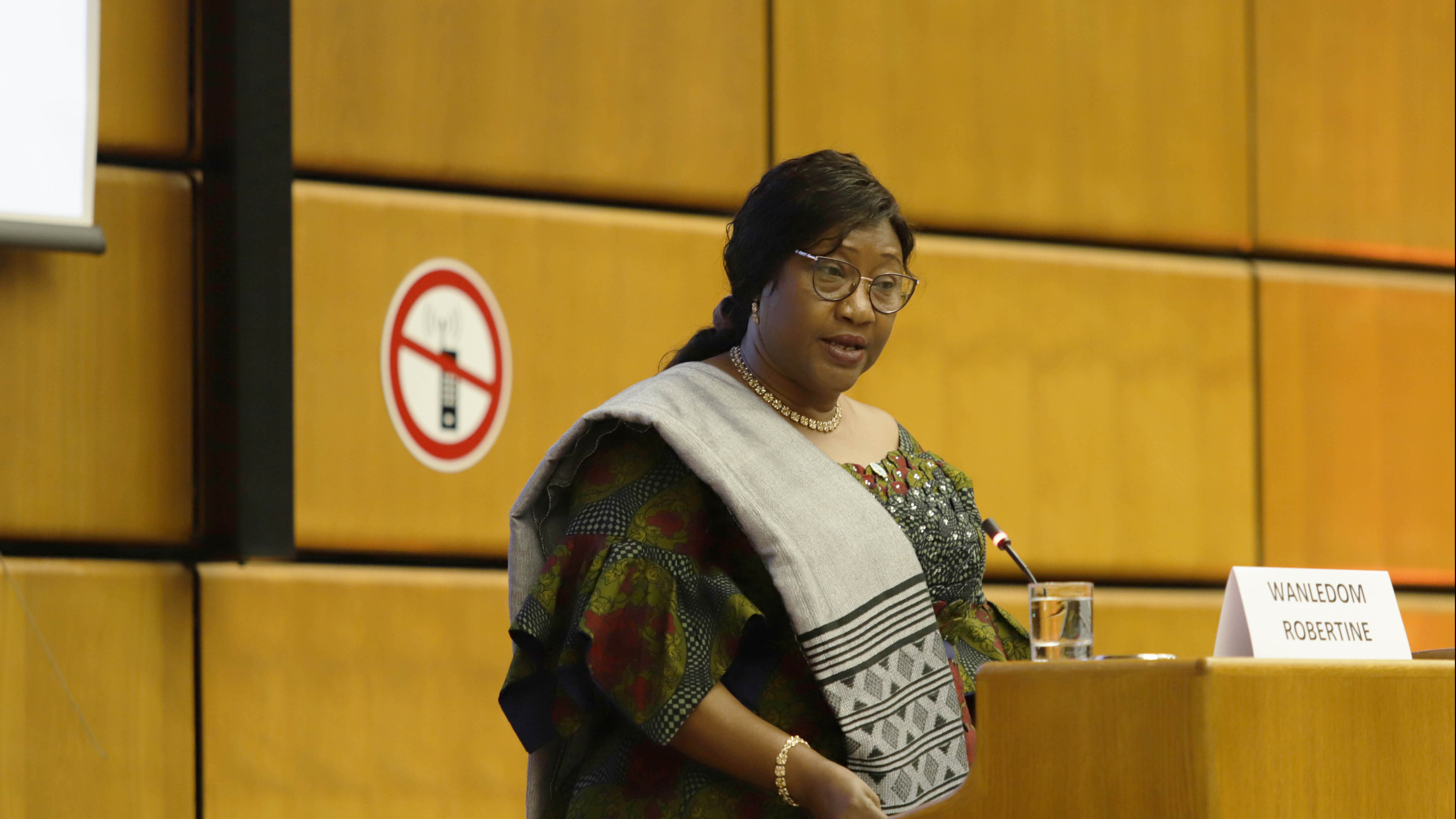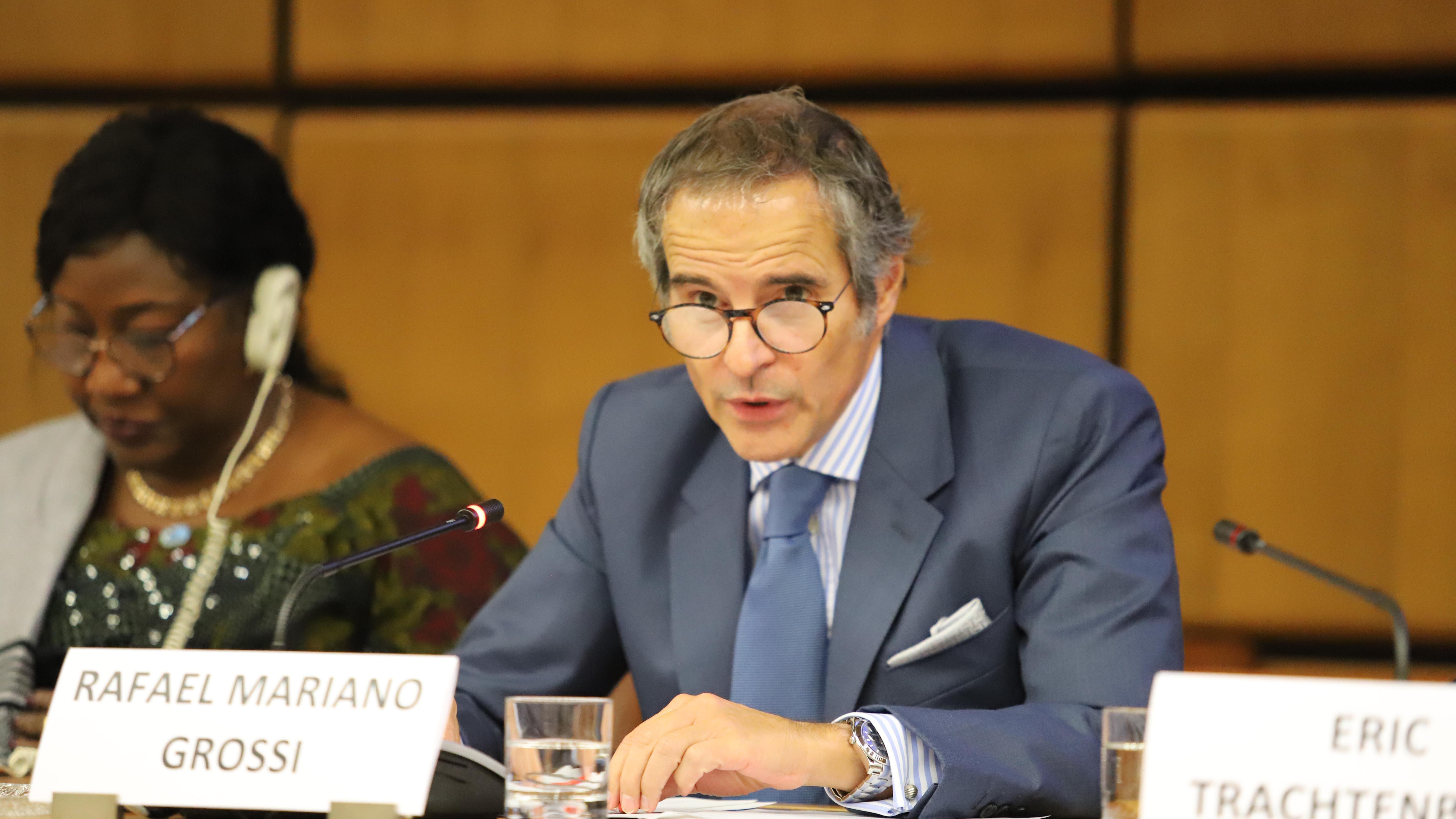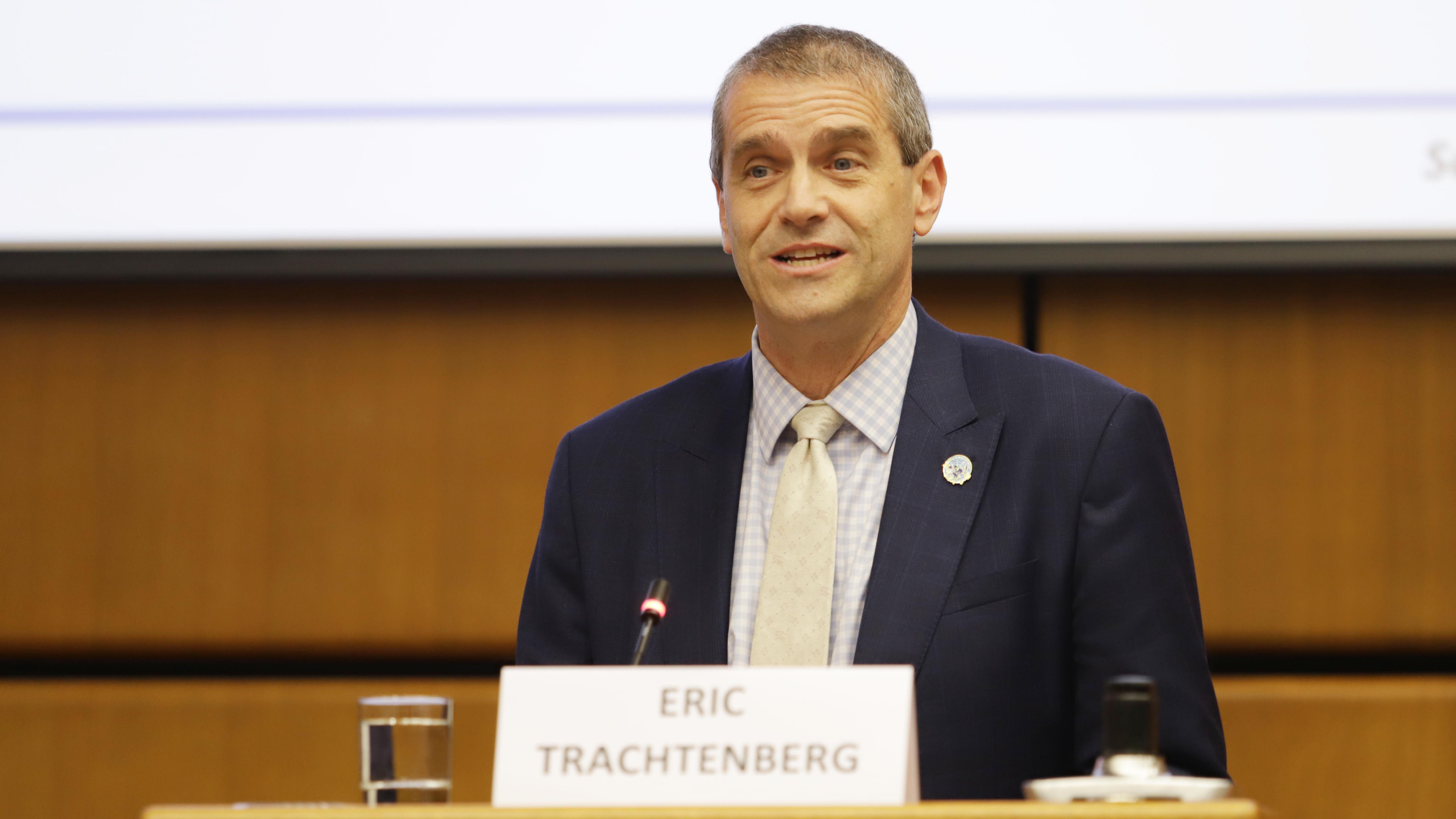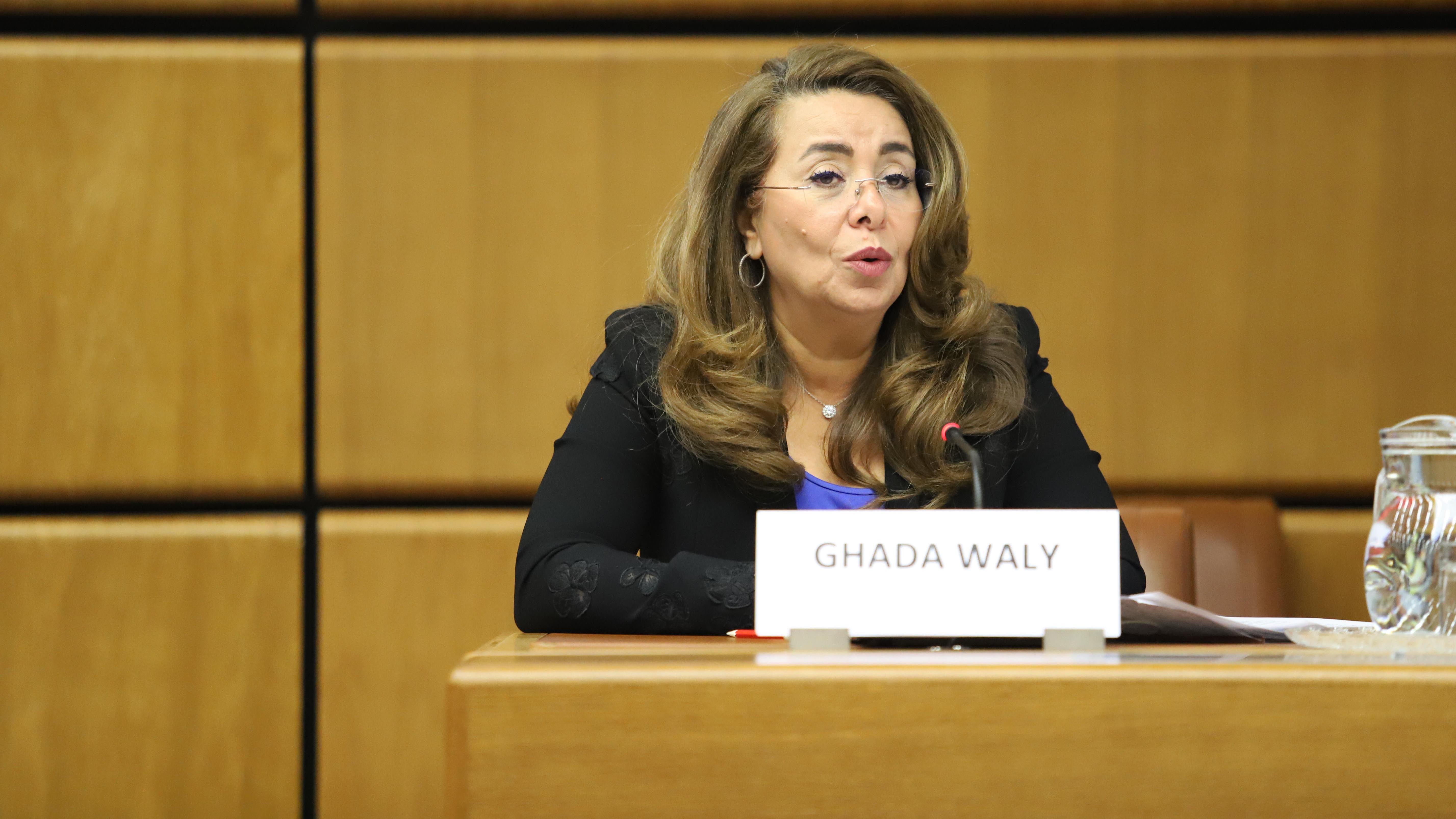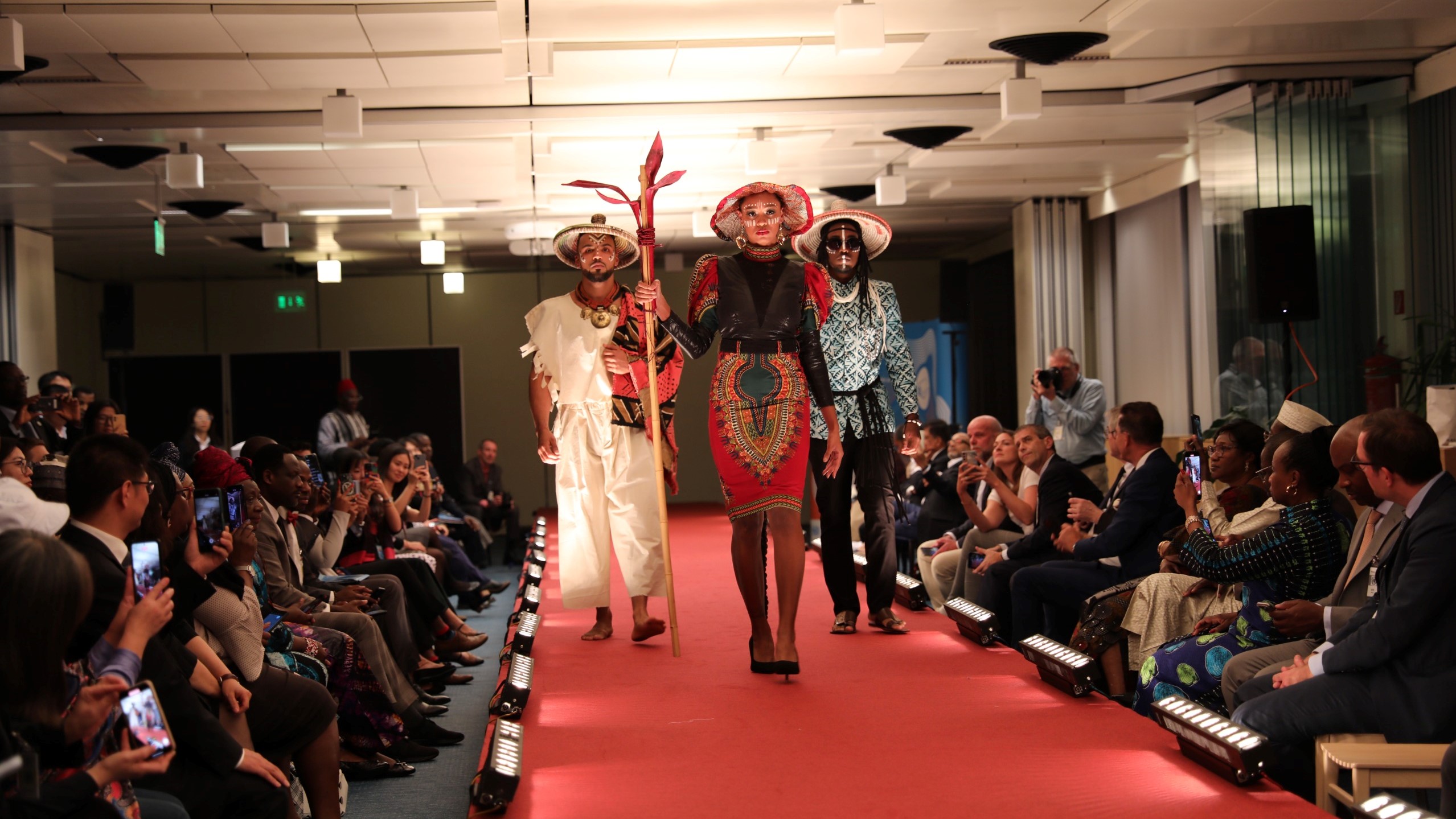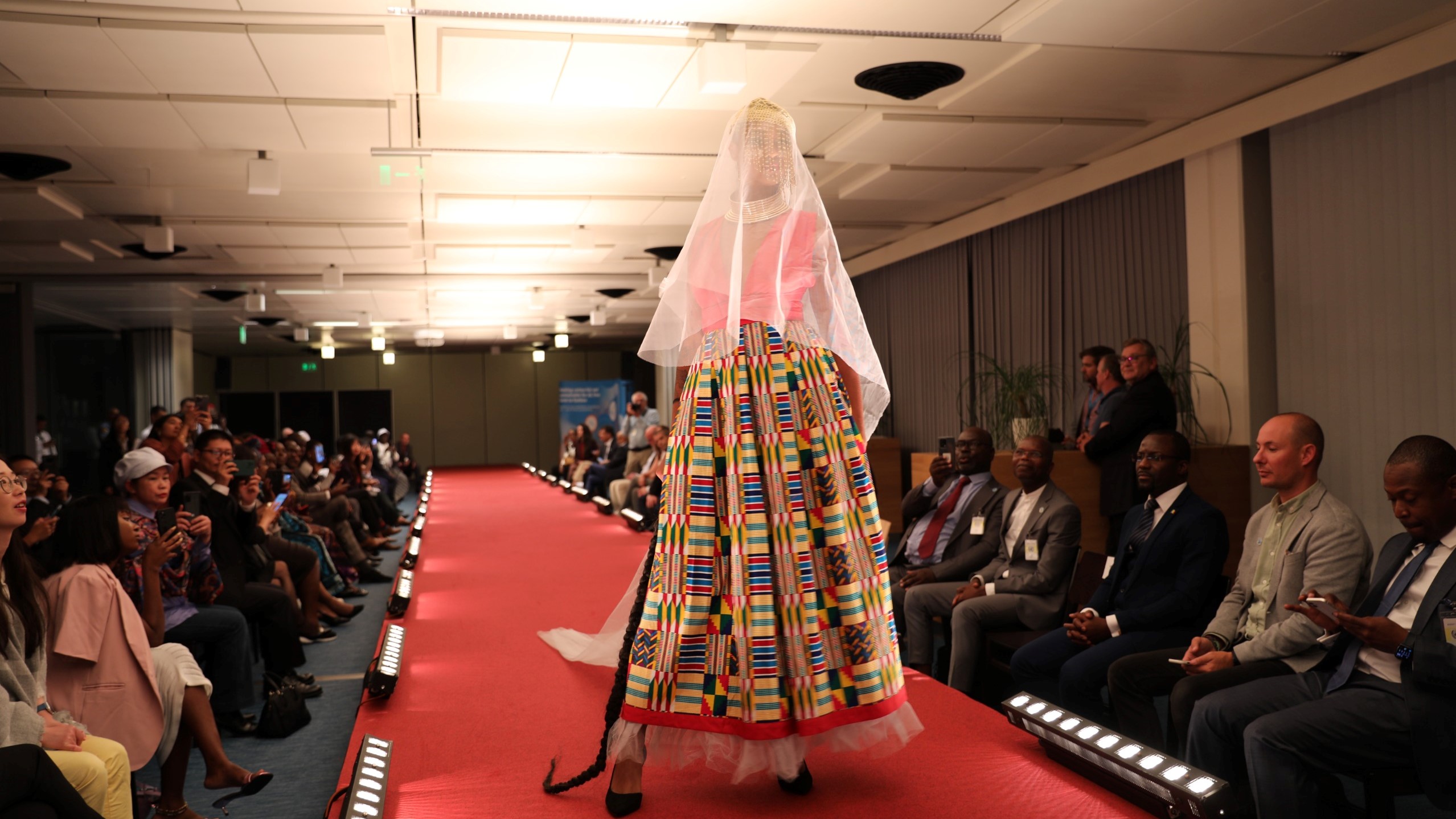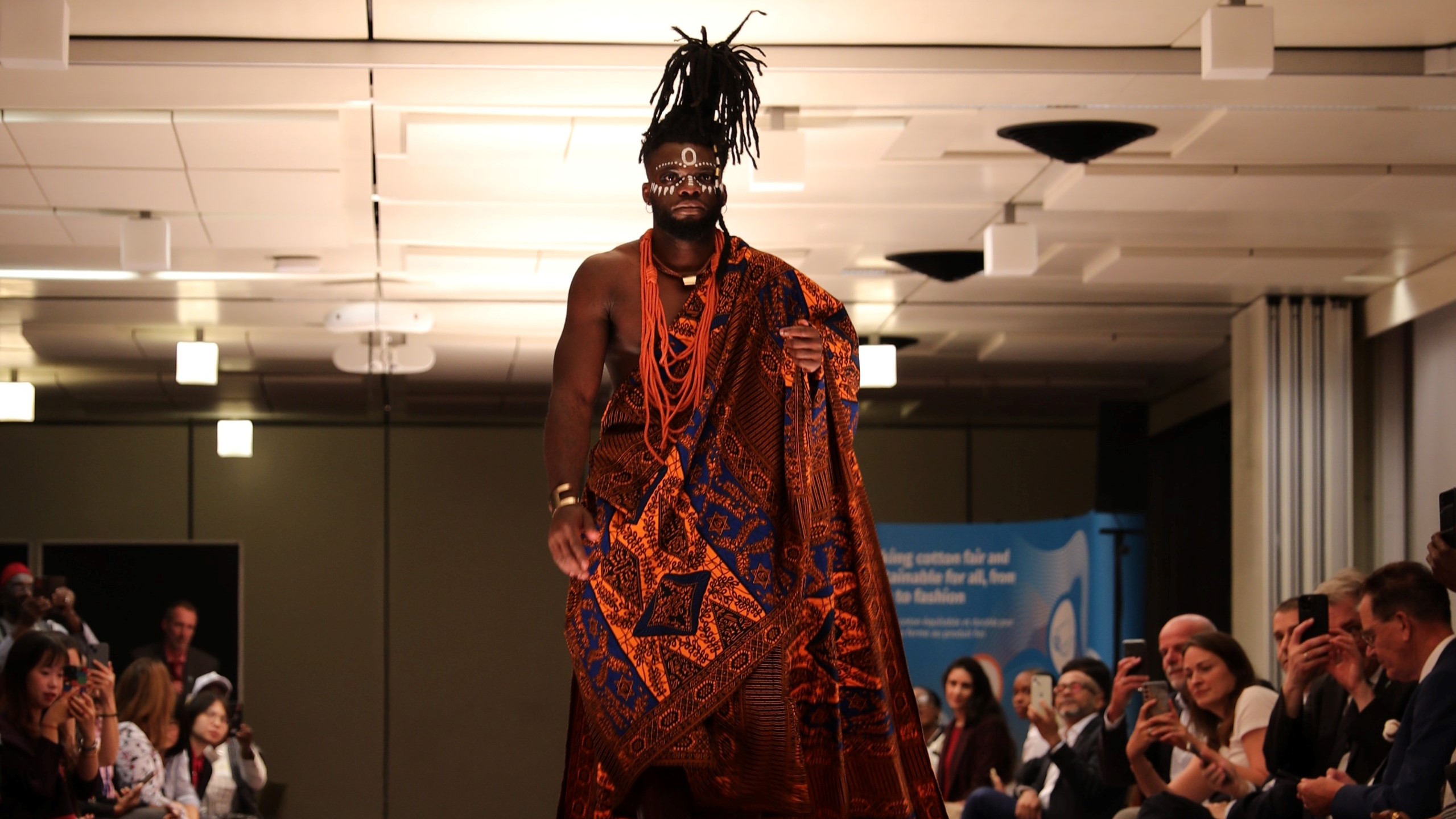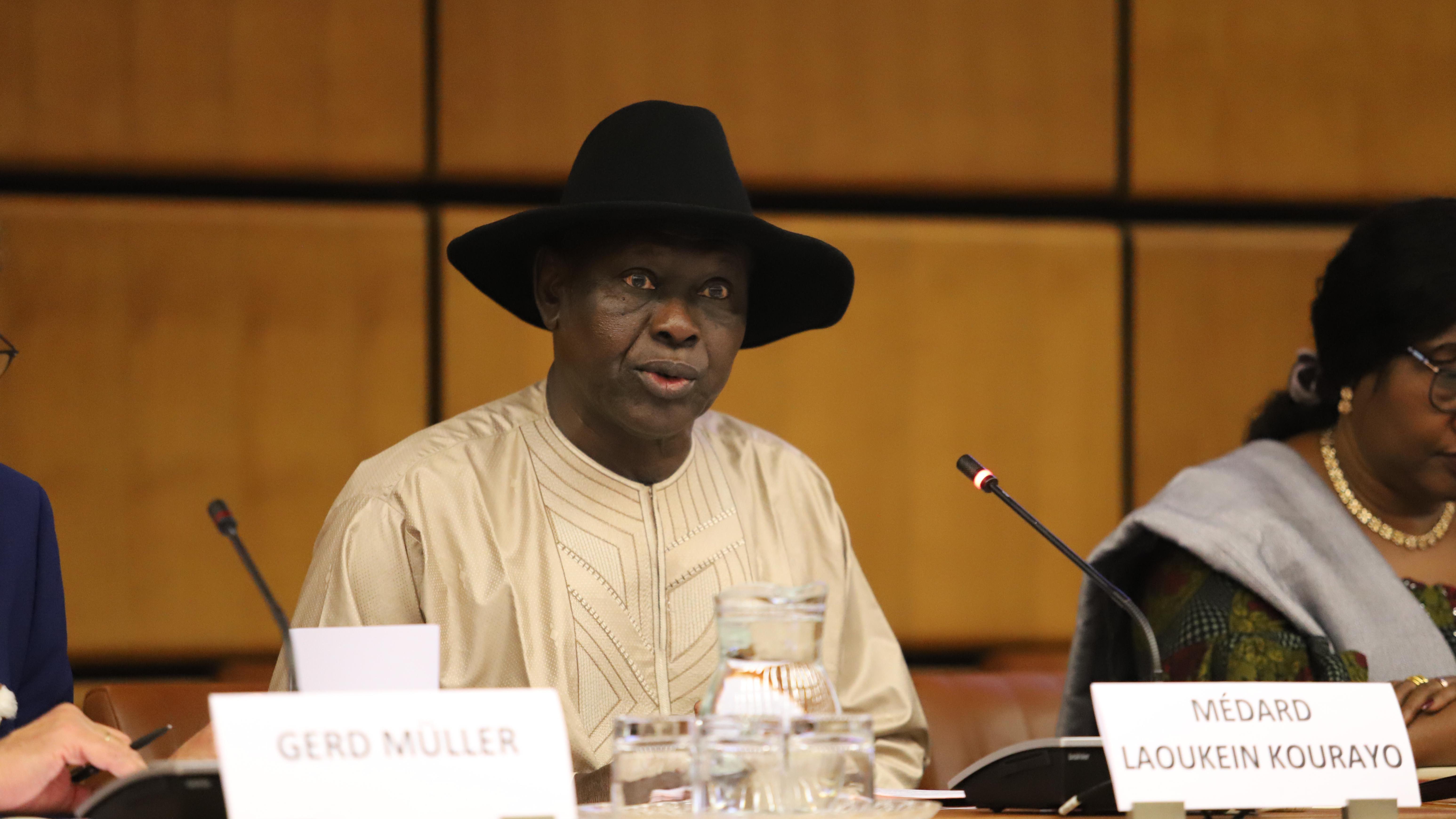

World Cotton Day 2023 celebrates cotton as major source of livelihoods in developing countries
07 October 2023
Vienna, Austria, 4 October 2023 – World Cotton Day 2023 was celebrated at the Vienna International Centre with an event titled, “Making cotton fair and sustainable for all, from farm to fashion”.
The event was hosted by the Secretariats of the United Nations Industrial Development Organization (UNIDO) and the Food and Agriculture Organization of the United Nations (FAO) in cooperation with the Secretariats of the World Trade Organization (WTO), the International Trade Centre (ITC), the United Nations Conference on Trade and Development (UNCTAD), the International Atomic Energy Agency (IAEA) and the International Cotton Advisory Committee (ICAC). It highlighted the crucial role of the cotton sector in economic development, international trade and poverty alleviation. The event also stressed the importance of inclusive and sustainable economic growth, full and productive employment, and decent work for all.
In his opening remarks, UNIDO Director General Gerd Müller highlighted that “this year’s World Cotton Day has the theme of making cotton fair and sustainable for all, from farm to fashion. Here, we are bringing together representatives from states, development partners, international organizations, the private sector and industry experts. Our topic here has truly global significance.”
“World Cotton Day offers an opportunity to renew our commitment to enhance the efficiency, inclusivity, resilience and sustainability of the cotton sector," QU Dongyu, Director General of the Food and Agriculture Organization, added, stressing also the key role of technology and innovation.
World Cotton Day was born in 2019, when four cotton producers in sub-Saharan Africa – Benin, Burkina Faso, Chad and Mali, known as the Cotton Four – proposed to the World Trade Organization to celebrate a World Cotton Day.World Cotton Day raises awareness of the importance of global market access for cotton and cotton-related goods from the world's least developed nations. It promotes the development of sustainable trade policies and empowers developing countries to derive greater benefits from each stage of the cotton production process. Cotton is a special commodity. The natural fibre is a life-changing product that sustains millions of growers worldwide across 80 countries on 5 continents. A single tonne of cotton provides year-round employment for 5 people on average, often in some of the most impoverished regions.
Cotton fibre used in textiles and apparel – the most common application – results in a fabric that is comfortable, hypoallergenic, breathable and durable. However, its applications go beyond textiles, to food products such as edible oil and seed-based animal feeds.
“This year's theme for World Cotton Day of making cotton fair and sustainable is an imperative for us all, given the sector's importance for the livelihoods of millions of people worldwide," according to WTO Director-General Ngozi Okonjo-Iweala. "The stakes are especially high in some of the world's poorest countries, where incomes related to cotton can make the difference between extreme poverty and a better life. I'm particularly encouraged that new participants have joined us in our efforts to improve prospects for greater returns in the cotton sector. This will have a positive impact on the economic prospects for the Cotton-4 countries and for livelihoods across West Africa.”
ITC Deputy Executive Director Dorothy Tembo added, “cotton is more than a commodity. By working together to equip producers with the information, skills and technology they need to move up the cotton value chain, we can promote higher incomes, sustainably produced goods and decent jobs, especially for women and young people. At the end of the day, this is about improving people’s lives, in a tangible way, through trade.”
UNCTAD Secretary-General Rebeca Grynspan urged, “boosting the development benefits of cotton by growing it more sustainably, levelling the playing field for trade and ensuring farmers receive a fair income.”
Stressing the role of cutting-edge technological solutions, IAEA Director General Rafael Mariano Grossi said, “nuclear sciences can help make cotton production more sustainable, offering innovative, climate-smart tools for growing stronger, healthier and more productive cotton crops. Making these tools more widely available to farmers helps to reduce rural poverty and boosts economic development in cotton-growing countries.”
Eric Trachtenberg, Executive Director of the International Cotton Advisory Committee (ICAC), concluded that there is a need to "make the industry more future proof. We need to address the unique challenges, harness the potential of the sector and we need a unified vision for lasting change, using the power of global partnership to drive transformation and behaviour change towards a sustainable cotton-textile future.”
Establishing an international cotton trading system that is rules-based, discrimination-free, open, and transparent is crucial. Such a fair system would play a pivotal role in providing decent livelihoods for millions of vulnerable individuals across the globe. Furthermore, there is a pressing need for increased investments to expand value-added processing of cotton in developing countries. This expansion would create fresh income-generating opportunities, especially for farmers, by enhancing the value of cotton fibre and producing by-products from various parts of the cotton plant.
Over 400 participants, including country delegates, experts, industry and international organization partners, representatives from financial institutions, the private sector, and academia, attended the event.

